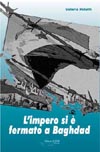August 8, 2014
Israeli airstrikes killed a ten-year-old Palestinian child in Gaza City on Friday after a 72-hour ceasefire agreement ended in the early morning. Ma’an News Agency reports that the child, Ibrahim Zuheir al-Dawawseh, was killed and fifteen Palestinians were wounded.
Ma’an adds that six others were injured in separate airstrikes in northern, central and southern Gaza.
Later in the day, Israeli warplanes attacked al-Qarara, north of Khan Younis, and killed three Palestinians. Palestinian resistance factions resumed rocket fire after the ceasefire ended and as Israeli negotiators in Cairo refused Palestinian demands for a truce. The demands include lifting the seven-year blockade and siege, allowing freedom of movement of persons and goods, and establishing a port.
In an interview with The Electronic Intifada on Friday, Dr. Belal Dabour, a resident physician at Gaza City’s al-Shifa hospital, said that "the situation in Gaza is tense, in anticipation for what will happen."
"Drones have not left the area," he added.
"Not enough"
Dabour explained that medicines and basic supplies are still scarce, although with some recent shipments of medicines from outside nongovernmental organizations, the surgery and emergency departments at the hospital are able to function.
The amount of medicines and supplies are "not enough to make us run on a normal level, to make us work with no worries of being unable to work the next day," he said. "So, yes, there are some supplies coming, but more and more are still needed."
The Electronic Intifada also interviewed Dr. Mona El-Farra, a physician with the Palestine Red Crescent Society and the director of Gaza projects at the Middle East Children’s Alliance. She said that families who are still displaced have been coming to the Red Crescent clinics with increased amounts of infectious diseases, including skin diseases and upper respiratory tract infections.
"It’s alarming and it’s related to the bad situation where displaced people are staying," said El-Farra on Thursday. "And it’s alarming because it means that another spread of infectious diseases is going to face the health workers in Gaza."
In addition, the physician said, "we don’t have water, we don’t have electricity, and this affects the sewer system which was already collapses and insufficient. And this will contribute to more infectious diseases in Gaza."
Listen to the entire interview with Dr. Belal Dabour via the media player above, or read the rush transcript below.
Transcript of interview with Dr. Belal Dabour
Belal Dabour: Right now, I’m at Shifa hospital, in the emergency room. This morning my own street was hit with a missile from a drone, and a child, his name is Ibrahim, ten years of age, was killed and his sibling was injured. Here at the hospital we heard news that one [person] was killed in Rafah, and in Deir al-Balah in the middle of Gaza.
But in the hospital, the situation is relatively calm, it’s not as tense or as occupied as the previous days have been. We receive injuries mostly from traffic accidents … with less corpses today and more regular injuries. The situation in Gaza is tense, in anticipation for what will happen. Drones have not left the area. Every now and then there are one or two explosions. But generally, it is not up to the scale before the 72-hour ceasefire.
But of course the people still suffer from this crisis, from the loss of homes, from the loss of their loved ones, despite the fact that it’s not officially over yet.
Nora Barrows-Friedman Dr. Dabour, when we last spoke a couple of weeks ago, you said that the medicines needed to treat patients were at "zero stock." Can you talk about whether those stocks have been resupplied, and whether physicians in Gaza are able to adequately treat these kinds of injuries?
BD: I say that there are enough to keep the hospitals running, to keep the service offered to people, but not enough to make us run on a normal level, to make us run, to make us work with no worries of being unable to work the next day. So, yes, there are some supplies coming, but more and more are still needed. The supplies that come generally cover the necessities required to keep the surgery department, the emergency room, running, but there are other departments.
For example, here in al-Shifa hospital, for months now chemotherapy for cancer patients are not available. So in conclusion, we still need a lot of things. We appreciate the help we have received, but we’re sure — to reach our objective, we need more.
NBF: Dr. Belal, some physicians in Gaza have talked about the new types of injuries that have been sustained from possibly new types of weapons that the Israeli military has been using. Have doctors been able to treat these injuries, and from a physician’s perspective, what are these types of weapons designed to do to the human body?
BD: Just like the attacks in 2012, they have noticed a new pattern of injuries where the patients are received in relatively good condition and then they deteriorate after one or two days. On examination, there are no shrapnels inside their body, but then one or two days later, they deteriorate as they receive massive shrapnels. Upon operation, you cannot find any missile fragments — there are speculations that this might be new types of weapons, for example the infamous DIME weapons, so far there is no evidence as far as they know. But we doctors take pieces of evidence from the patients when they died or had operations for later documentation if possible. There are international teams who are interested in investigating this matter.
NBF: Finally, Dr. Belal, Israel has been deliberately targeting medical workers throughout this past month. How are you keeping yourself and your staff safe, and what message do you think that these kinds of attacks and deliberate targeting of medical workers sends to Gaza?
BD: In these current attacks, there was absolutely no taboos — everything was targeted. Education, health, religious targets, civilian targets, NGOs, everything received its share of the fire. And doctors sustained a big share of the toll that this operation sustained. So far, fifteen medical workers were killed in the attacks, most of them during duty, due to direct targeting of the ambulances. This led into the targeting of the hospitals and health centers, four major hospitals were out of work due to the damages they sustained in the direct hits — and you can add to that that the work, having to deal with life and people having to save hundreds every day — this altogether posed a huge risk.
But being a doctor is all about sacrifice. They have to do it, because people depend on it. The cohesion of everyone around us depends on how we are staying put in one piece, not losing our senses. And therefore we feel a huge responsibility and we act according to our responsibility.
We will have time to rest, but it’s not this time yet. Maybe later when it is all over.
Source
















